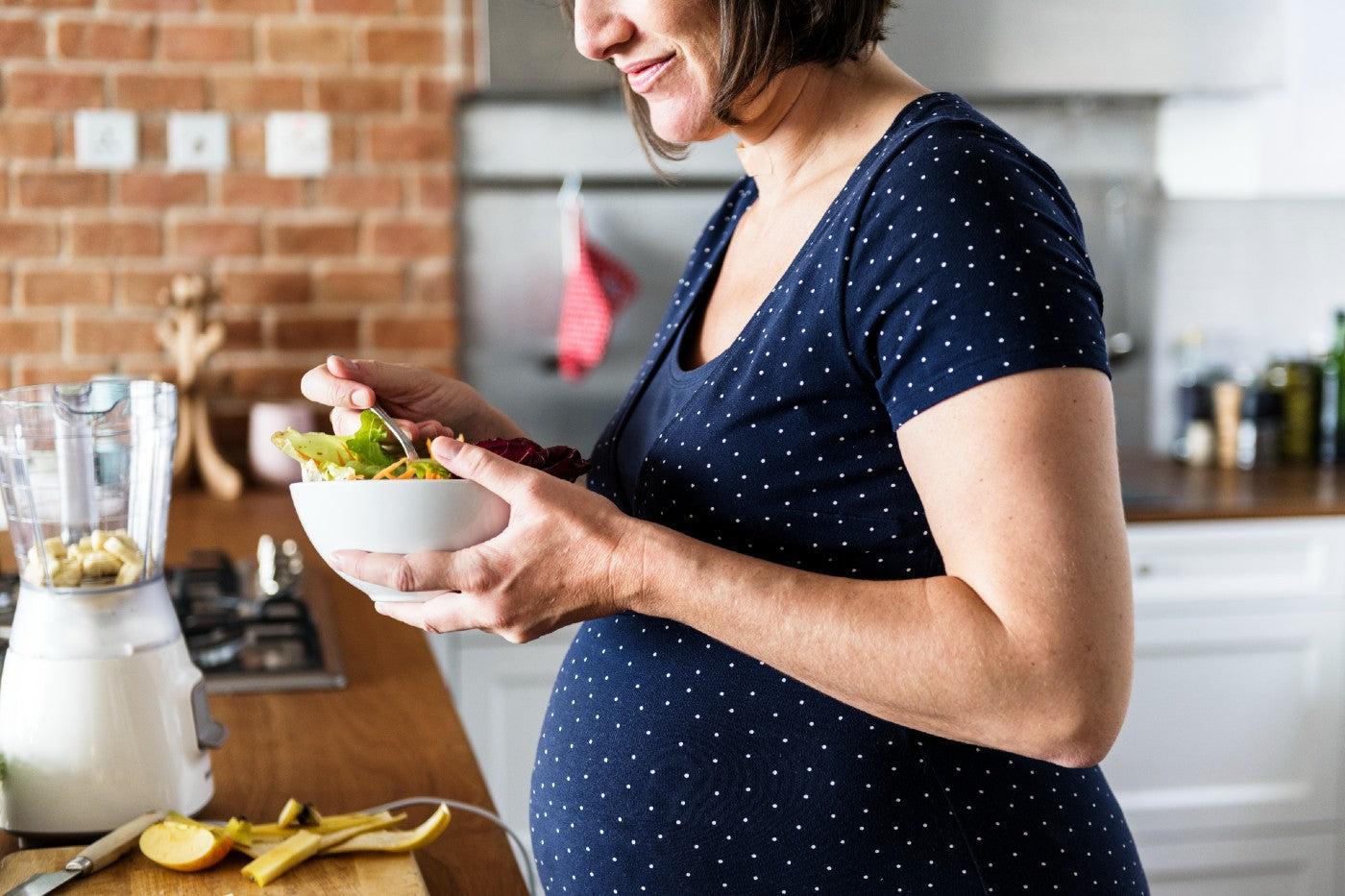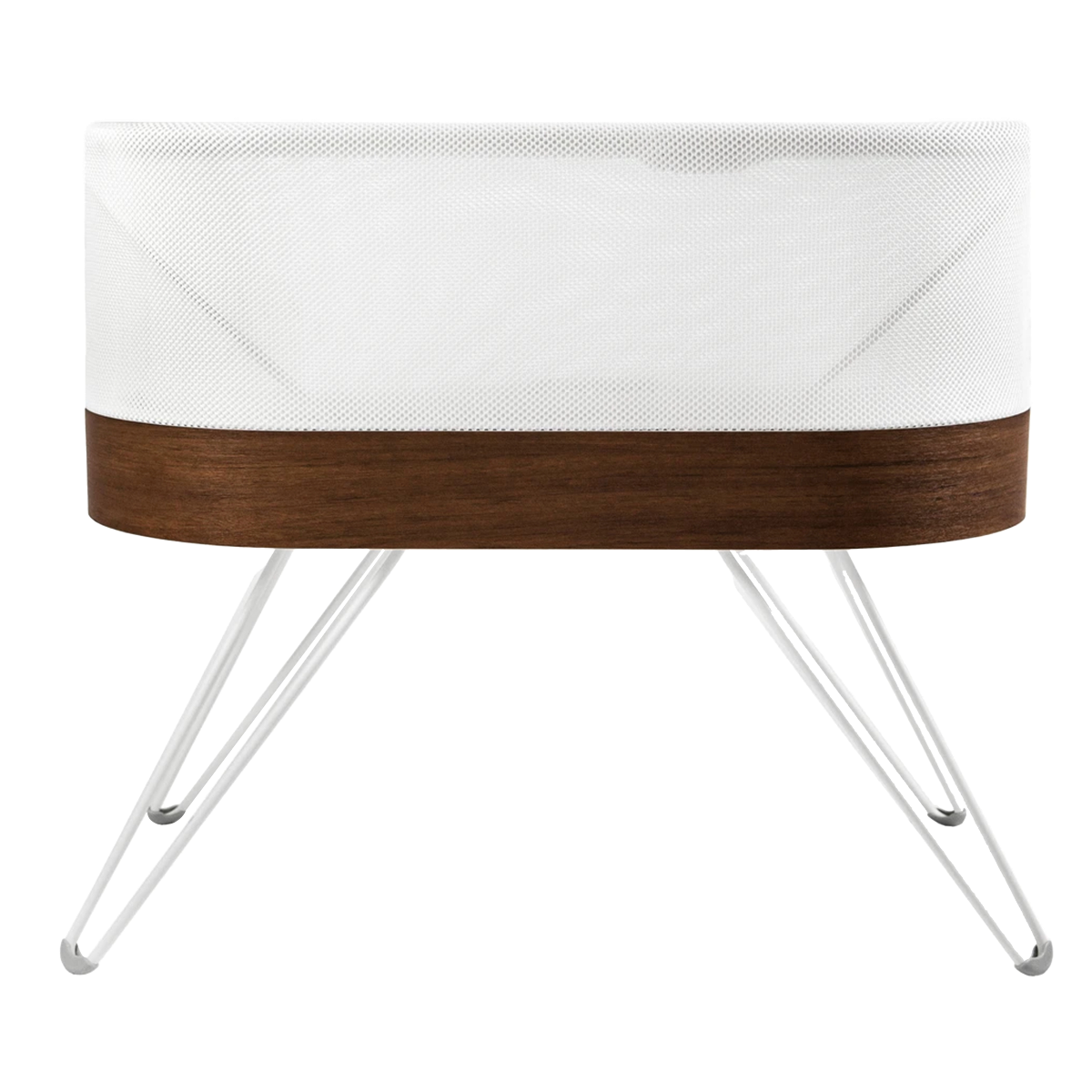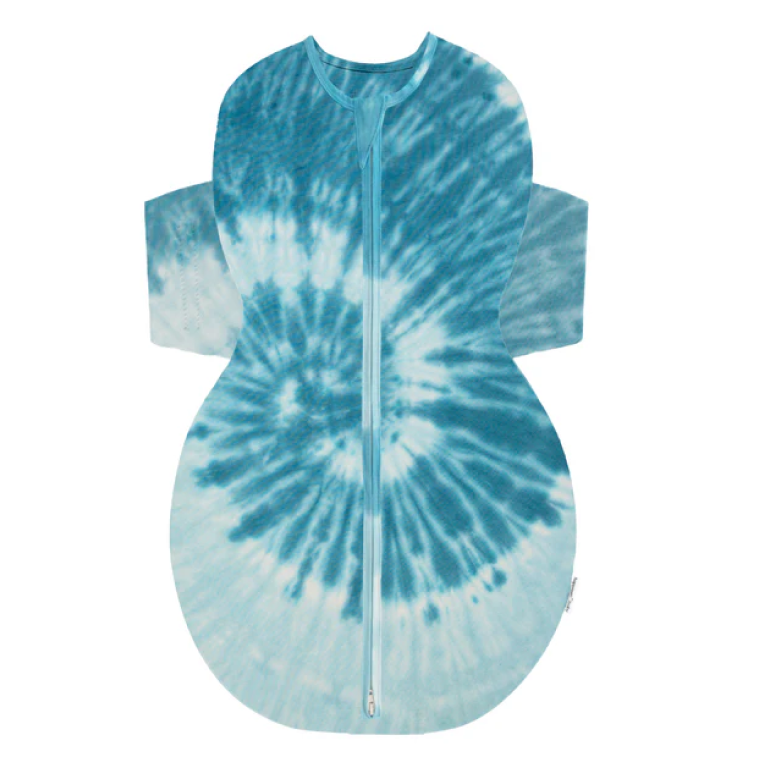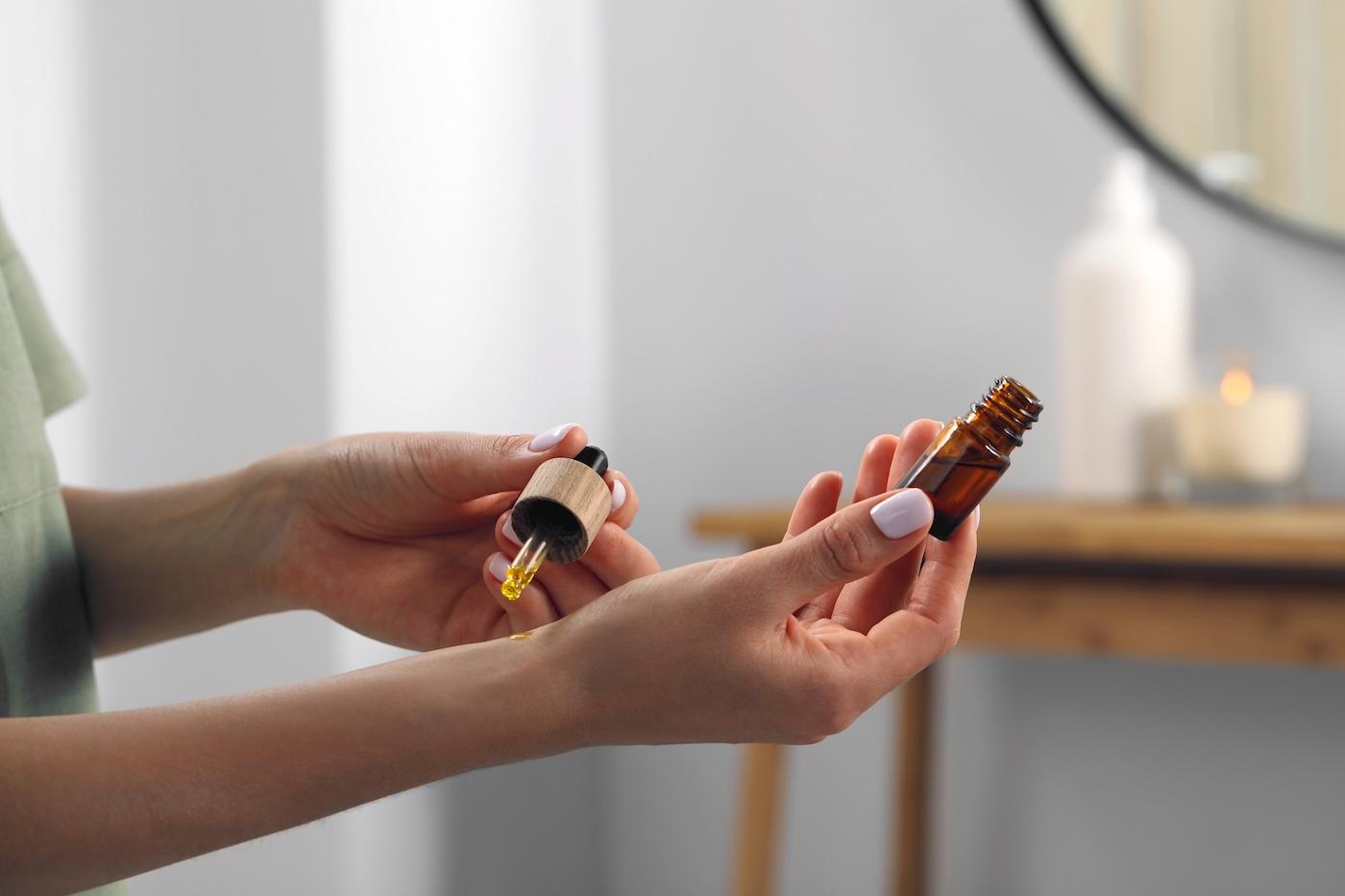PREGNANCY
Straight Talk on Foods to Avoid in Pregnancy
You’ve heard of “eating for two”—so which foods can you chow down on safely while pregnant?

Written by
Happiest Baby Staff

You’ve heard that old adage of “eating for two” when you’re expecting. And when you’re trying to make sure you get folic acid, healthy fats, vitamins, and just the right number of extra calories to support a healthy fetus, licking your plate clean may suddenly feel like you’ve finally gotten the job you’ve always wanted!
But, it’s important to know that, while you are busy growing a person inside you, your own immune system is being suppressed, making it more difficult to protect you from foodborne toxins and infections. So, before you start the feasting, here are some foods that are wise to avoid during pregnancy.
Food to Avoid in Pregnancy #1: Fish That Are High in Mercury
Fish is generally a healthy and safe food—especially fatty fish, like properly cooked Atlantic salmon, because it’s so high in omega-3 fatty acids that are super healthy for growing hearts and brains. (Omega 3’s have even been shown to reduce postpartum depression!).
But during pregnancy there are no safe levels of the toxic metal, mercury. That’s because mercury is poisonous to brain cells…especially for growing babies. Your safest bet is to avoid high mercury fish such as tuna, swordfish, shark, and King mackerel. So, be extra thoughtful when you are loading up your basket at the fish market. Here’s more info on eating fish during pregnancy!
Food to Avoid in Pregnancy #2: Raw and Undercooked Foods
Raw and undercooked foods are a no-no when you’ve got a bun in the oven because of their potential to spread foodborne illness. Raw or undercooked foods, including meats, fish, cold cuts, hot dogs, sprouts (alfalfa, mung beans, etc), and even some prepackaged plant-based foods, run the risk of carrying parasitic infection from Toxoplasma, or bacterial infections from E. coli, listeria and salmonella, which are all foodborne illnesses that cause more than just an upset stomach. Exposing a growing baby to any of these infections can lead to intellectual disabilities, blindness, epilepsy, possible neurological disorders, and even stillbirth.
If you can’t live without some of the meats listed above, then make sure they are cooked properly and thoroughly to eliminate the risk of exposure to bacterial or parasitic infection. That means, for example, heating cold-cuts before chowing down. (Well-done steak or warm roast beef sandwich anyone?)
Is sushi safe to eat during pregnancy?
The American College of Gynecologists and Obstetricians (ACOG), The Food and Drug Administration (FDA), and the Center for Disease Control and Prevention (CDC) all recommend against consuming raw fish during pregnancy…and that includes sushi made with raw fish.
Craving sushi anyway? Try rolls made with cooked fish or veggies instead of raw fish. Some safe sushi options include:
- Shrimp tempura rolls (made with cooked shrimp)
- Eel rolls (made with cooked eel)
- Avocado rolls
- Sweet potato rolls
- California rolls (made with imitation crab meat)
- Crab rolls (made with baked crab)
- Spider rolls (made with soft shell crab)
- Dragon rolls (made with cooked eel and imitation crab)
Food to Avoid in Pregnancy #3: Unpasteurized Cheese, Milk, and Juice
Who doesn’t love a cheese platter? But when building your next cheese board, you’ll want to avoid unpasteurized cheeses (cheese that hasn’t gone through the bacteria-killing pasteurization process) if you’re pregnant. Off-limits cheeses include certain Bries, queso frescos, Camemberts, and fetas that are made with raw milk.
Like raw and undercooked meats, unpasteurized cheese carries a high risk of exposure to listeria. Listeria causes food poisoning with symptoms that can include fever, muscle aches, vomiting, and diarrhea. For an unborn baby, listeria can lead to life-threatening infections, premature birth, stillbirth, or miscarriage.
But you don’t have to swear off all cheese! You can eat pasteurized cheeses with abandon. Simply take a look at the label before piling Brie or feta into your shopping basket. Pro tip: Most grocery stores in the United States only sell pasteurized cheese. So, if you’re loading up on cheese at the supermarket, it’s likely safe. If you’re ordering a cheese plate from a restaurant, the farmer’s market, or a specialty store, it’s best to ask. Oh, and though you’re unlikely to encounter unpasteurized milks and juices in your grocery store, please know that you should steer clear of unpasteurized milks and juices during pregnancy as well.
Food to Avoid in Pregnancy #4: Alcohol
Sure, the Internet may be split on the safety of a glass of wine here or there for an expecting parent but honestly, it’s still split on the blue or gold dress too (not to mention the world wide web has yet to earn its MD)! And the American Academy of Pediatrics (AAP) is clear on their view: There is no amount or type of alcohol during pregnancy (at any point in the pregnancy) that can be consumed without risk.
The biggest risk of drinking alcohol during pregnancy is fetal alcohol syndrome. Babies born with this condition can have a variety of symptoms that include distinctive facial features like wide-set eyes and a small head, small than average weight and height, poor coordination, learning and intellectual delays and disabilities, heart and kidney defects, deformed digits, and more. Now, will a glass of wine here or there have the same effect as excessive drinking? Maybe not. Still, there is no known “safe” amount of alcohol for a developing fetus, which is why both the AAP, CDC and ACOG discourage drinking any alcohol during pregnancy. Plan on having your next glass of sauvignon blanc after you give birth.
Food to Avoid in Pregnancy #5: Raw Eggs and Flour
Put the cookie dough down and slowly back away! Raw eggs—and even flour—can carry the risk of salmonella, which can cross the placenta and affect an unborn baby. Symptoms can include dehydration, fever, stomach cramps, diarrhea, and even icemeningitis. Salmonella also carries the risk of stillbirth and miscarriage making this bacterium incredibly dangerous…so pregnant women should avoid uncooked eggs and flour in foods like cookie dough. Instead, satisfy those cookie cravings with treats that are fully baked!
Food to Avoid in Pregnancy #6: Unwashed Fruits and Veggies
Fruits and veggies pack so many essential nutrients—so by all means, keep adding them to your plate, bowl, and blender (we especially love these smoothie add-ins for pregnancy). But before you do, be sure to give them a quick wash! Unwashed produce comes with the risk of toxoplasma, according to the FDA. Prior to digging in, run your produce under running water as you gently rub it (there’s no need to use soap here!) and then dry it using a clean paper towel or cloth.
Final Thoughts on Foods to Avoid in Pregnancy
When eating for two, you’ll need to give some thought to how the items on your plate could affect your little one. That’s because pregnancy weakens the immune system, making you more susceptible to foodborne pathogens, like listeria, toxoplasma, and salmonella. (You can keep an eye on foodborne illness outbreaks here.) At the same time—try not to overthink it! (We know that’s easier said than done.) For the most part, if you’re opting for fully-cooked, pasteurized foods and low-mercury fish, steering clear of alcohol, and washing your produce before eating it, you’re doing what you need to be to keep yourself and your growing bub healthy. And though there are foods that should stay off your grocery list until Baby arrives, there are plenty of healthy eats that you can enjoy without worry. Bon appetit!
Read more tips for a healthy pregnancy:
- The Pregnancy Deficiency You Need to Know About
- Can I Have Caffeine During Pregnancy?
- The Nutrients You Need While Pregnant
- Low-Carb Snacks for Gestational Diabetes
- How to Relieve Pregnancy Heartburn
- How to Ease Morning Sickness
- Your Week-by-Week Pregnancy Guide
***
REFERENCES- Your Pregnancy and Childbirth Month to Month, The American College of Obstetricians and Gynecologists
- American College of Obstetricians and Gynecologists: Nutrition During Pregnancy
- U.S. Food and Drug Administration: Advice About Eating Fish
- American College of Obstetricians and Gynecologists: Listeria and Pregnancy
- American College of Obstetricians and Gynecologists, “The Top 6 Pregnancy Questions I Hear From First Time Moms,” Dr. Ann Sruiso, OB/GYN, April 2022
- Center for Disease Control and Prevention: Listeria Questions and Answers
- Center for Disease Control and Prevention: Salmonella
- Sources of Toxoplasma Infection in Pregnant Women: European Multicentre Case-Control Study, BMJ, July 2000
- A Brief Overview of Escherichia Coli O157:H7 and Its Plasmid O157, Journal of Microbiology and Biotechnology, January 2010
- Salmonella in Raw Meat and By-Products From Pork and Beef, Journal of Food Protection, October 2010
- U.S. Food and Drug Administration: “Food Safety for Pregnant Women, Their Unborn Babies, and Children Under Five,” January 2022
- American Academy of Pediatrics: Fetal Alcohol Spectrum Disorders: FAQs of Parents & Families
- American Academy of Pediatrics: Alcohol and Pregnancy: It’s Just Not Worth the Risk
- American College of Obstetricians and Gynecologists: Alcohol and Pregnancy
- Center for Disease Control and Prevention: Alochol Use in Pregnancy
- U.S. Food and Drug Administration: Fruits, Veggies and Juices from Food Safety for Moms to Be
- U.S. Food and Drug Administration: 7 Tips for Cleaning Fruits, Vegetables
Disclaimer: The information on our site is NOT medical advice for any specific person or condition. It is only meant as general information. If you have any medical questions and concerns about your child or yourself, please contact your health provider.
SHARE THIS ARTICLE
MOST LOVED
Sleepytime Sidekicks












